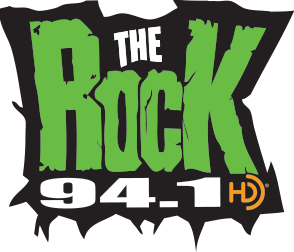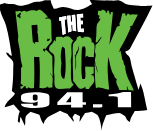Lawmakers voted this past week to approve a state budget that included a 10 percent inflationary increase for nursing homes, funding Noem prioritized but that ultimately exceeded the 5 percent bump she sought in her January spending plan. The Republican governor also saw lawmakers budget millions of dollars for her favored proposals, including rural broadband, pheasant habitat and fighting the methamphetamine epidemic, before they left the Capitol.
“What I laid out in my budget was a lot of priorities that I believed we should focus on, and I was thrilled to see virtually all of that funded and prioritized by the Legislature as well,” Noem told reporters. “I think we had a good partnership, and we’ll continue to do so into the future.”
The measures included $5 million each for nursing home innovation grants and expanding rural broadband, $4.6 million for improving state radio infrastructure and another $4.6 million to combat meth abuse. Lawmakers also delivered to Noem $1 million to protect and improve wildlife habitat, not to mention policy priorities such as a reporter shield law.
House Majority Leader Lee Qualm said Noem’s first session as governor went very well for her. He counted the pipeline legislation and a permitless concealed carry measure among positive steps lawmakers took this session.
“I think we really advanced a lot of different fronts this year and got a lot of good things done,” Qualm said.
Noem and the Republican-controlled Legislature also muscled through a pair of bills aimed at potential protests against the planned Keystone XL oil pipeline that seek to prevent disruptive demonstrations like those against the Dakota Access pipeline that cost North Dakota millions and led to hundreds of arrests. The Legislature rushed Noem’s bills to approval in three days, but she hasn’t yet signed them into law.
The bills would require pipeline companies to help pay extraordinary expenses such as the cost of policing during protests and allow officials to pursue money from demonstrators who engage in “riot boosting,” which is defined in part as encouraging violence during a riot.
The measures sparked opposition from Native American tribes who say they weren’t consulted. At least two tribes have since asked that their flags not be hung at the state Capitol as part of Noem’s plan to permanently display the flags of the nine tribes in South Dakota in the building’s rotunda.
Cheyenne River Sioux Tribe lobbyist Remi Bald Eagle told a legislative committee that the tribe supports the constitutional rights of tribal members and the public to peacefully assemble and engage in free speech on issues of great importance. He added that the tribe does not support riots.
“Together these bills send the message that the state of South Dakota is more interested in getting paid to suppress its citizens’ rights than it is paying attention to the rights of its citizens,” Bald Eagle said.
After years of unsuccessful attempts under Republican former Gov. Dennis Daugaard, supporters of allowing people to carry concealed pistols without a permit saw the conservative prize approved. The so-called constitutional carry measure was the first bill Noem signed into law, and a bill that would let people with enhanced concealed carry permits bring guns into the Capitol awaits her signature or veto.
Other bills pending before Noem include a measure seeking to promote free speech on college campuses and bills to address the unsolved deaths and disappearances of Native American people and recognize the official indigenous language of South Dakota as that of the Oceti Sakowin, or Great Sioux Nation.
Noem has so far rejected two bills, one of them a plan to legalize industrial hemp production in the state. The House voted last week to override Noem’s veto, but the Senate didn’t get the two-thirds support needed to follow suit, killing the measure for this year.
In a video released after she vetoed the proposal, Noem said South Dakota isn’t ready for hemp. The main sponsor, Democratic Rep. Oren Lesmeister, said that Noem is out of touch with the state’s lawmakers and residents.
Some high-profile measures didn’t reach the governor. They included the state attorney general’s plan to scrap the state’s presumptive probation policy for some lower-level felonies, a measure to cut the time allowed for early voting and several bills targeting transgender people that lawmakers have rejected in previous years.
Lawmakers return March 29 to debate any vetoes that could come from the governor, but they finished the main part of the 2019 session early Wednesday after setting state spending.
The budget for the upcoming 2020 fiscal year that begins July 1 includes about $1.7 billion in general state spending, about $59 million more than the current budget year.
The big boost for nursing home funding got top billing, but community support providers who help people with intellectual or developmental disabilities live independently in their communities also received a significant 6.5 percent hike. Noem said the budget funds “critical increases” for both groups of providers.
South Dakota nursing homes are experiencing a financial crisis that’s led to five closures over the last three years, with a sixth set to shut down by May because of a lack of funding.
“We got a lot of money going back to them, and it should make a big difference,” Qualm said.







